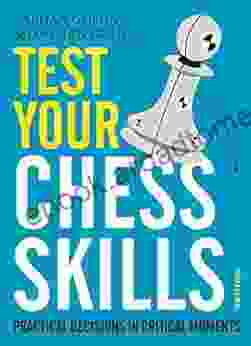Unlocking the Secrets of Health Behavior: A Comprehensive Guide to Behavioral Epidemiology

Health behavior is a crucial determinant of overall well-being. Understanding the factors that influence health behaviors is essential for promoting healthier lifestyles and preventing diseases. Behavioral epidemiology is a field of research that focuses on the investigation of health behaviors, their determinants, and their impact on health outcomes. This article provides a comprehensive guide to behavioral epidemiology, its principles, applications, and the latest research findings.
Behavioral epidemiology is based on the premise that health behaviors are influenced by a complex interplay of biological, psychological, social, and environmental factors. These factors operate at multiple levels, from the individual to the community and societal levels. Key principles of behavioral epidemiology include:
- Multifactorial causation: Health behaviors are influenced by a combination of factors rather than single causes.
- Determinant approach: Behavioral epidemiology seeks to identify the factors that cause or contribute to health behaviors.
- Health disparities: Health behaviors and their consequences often vary across different population groups due to social, economic, and structural inequalities.
- Prevention and intervention: Behavioral epidemiology aims to develop and evaluate interventions that promote healthy behaviors and prevent diseases.
Behavioral epidemiology has a wide range of applications in public health practice, including:
4.2 out of 5
- Disease prevention: Identifying risk factors and developing interventions to reduce the incidence of chronic diseases such as heart disease, cancer, and diabetes.
- Health promotion: Promoting healthy behaviors such as physical activity, healthy eating, and smoking cessation.
- Health policy: Informing health policies and regulations that support healthy behavior choices.
- Health behavior surveillance: Monitoring health behaviors and trends over time to assess progress and identify emerging issues.
Behavioral epidemiology research methods include:
- Observational studies: Collecting data from participants without manipulating their behavior, such as cross-sectional, cohort, and case-control studies.
- Intervention studies: Testing the effectiveness of interventions designed to promote healthy behaviors, such as randomized controlled trials and community-based programs.
- Qualitative research: Exploring the perspectives, experiences, and beliefs of individuals or groups to understand health behavior patterns.
Research in behavioral epidemiology has yielded valuable insights into the factors that influence health behaviors and their implications for health. Here are some key findings:
- Social support: Social connections, relationships, and community involvement play a significant role in shaping health behaviors.
- Environmental factors: The physical, social, and economic environment can influence access to healthy resources, opportunities for physical activity, and exposure to health risks.
- Health literacy: The ability to understand and use health information is crucial for making informed health decisions.
- Cultural factors: Cultural norms, values, and beliefs can influence health behaviors and perceptions of health risks.
- Life course perspective: Health behaviors are shaped by experiences and influences throughout the lifespan, from childhood to old age.
Behavioral epidemiology has practical implications for promoting healthier lifestyles and preventing diseases. Here are some examples:
- Targeted interventions: Identifying specific risk factors and populations for targeted interventions can improve their effectiveness.
- Multi-component interventions: Interventions that address multiple determinants of health behavior are more likely to be successful than single-component interventions.
- Social and environmental change: Creating supportive social and physical environments can make healthy choices easier.
- Health communication: Communicating health information effectively can help individuals make informed decisions about their health.
Behavioral epidemiology is an essential field of research that provides valuable insights into the factors that influence health behaviors and their impact on health outcomes. By understanding the principles and applications of behavioral epidemiology, public health practitioners and researchers can develop and implement effective interventions to promote healthier lifestyles and prevent diseases. Ultimately, the goal of behavioral epidemiology is to create a society where all individuals have the opportunity to live healthy and fulfilling lives.
4.2 out of 5
Do you want to contribute by writing guest posts on this blog?
Please contact us and send us a resume of previous articles that you have written.
Light bulbAdvertise smarter! Our strategic ad space ensures maximum exposure. Reserve your spot today!

 Curtis StewartUnveiling the Treasures of "Collectores Venatoresque Agricolae Pastoresque":...
Curtis StewartUnveiling the Treasures of "Collectores Venatoresque Agricolae Pastoresque":...
 Damon HayesUnlock the Secrets of Hospitalization: 52 Essential Considerations for Every...
Damon HayesUnlock the Secrets of Hospitalization: 52 Essential Considerations for Every... Dominic SimmonsFollow ·9.6k
Dominic SimmonsFollow ·9.6k Hudson HayesFollow ·19.1k
Hudson HayesFollow ·19.1k Trevor BellFollow ·9.2k
Trevor BellFollow ·9.2k Ryan FosterFollow ·6.1k
Ryan FosterFollow ·6.1k Joshua ReedFollow ·15k
Joshua ReedFollow ·15k Ezekiel CoxFollow ·19.4k
Ezekiel CoxFollow ·19.4k Jan MitchellFollow ·10.2k
Jan MitchellFollow ·10.2k Marcel ProustFollow ·2.7k
Marcel ProustFollow ·2.7k

 Eugene Scott
Eugene ScottHeal Your Multiple Sclerosis: Simple And Delicious...
Are you looking for a...

 Bo Cox
Bo CoxMyles Garrett: The Unstoppable Force
From Humble Beginnings Myles Garrett's...

 Ralph Turner
Ralph TurnerDiscover the Wonders of Weather with My Little Golden...
My Little Golden...

 Arthur Mason
Arthur MasonKawaii Easy Sudoku Puzzles For Beginners: Unleashing Your...
Immerse Yourself...

 Felix Carter
Felix CarterGet Started in Stand-Up Comedy: Teach Yourself
Have you...

 Russell Mitchell
Russell MitchellChallenge Your Mind: Test Your Chess Skills with an...
Are you ready to embark on a...
4.2 out of 5














































